How Chicagoans are Building Community for Free, and How You Can, Too.
Third places have been a hot topic in recent months. The sociologist who coined the term, Ray Oldenburg, defines them as “the public places on neutral ground where people can gather and interact.” Somewhere like a library, a public park, a cafe, a coffee shop, a bar or other place outside of work or home is considered a third place.
The chatter on third places is not because our environments are teeming with them, but rather about the lack of them. The COVID-19 pandemic shuttered hundreds of third places, specifically bars and restaurants, revoking many Chicagoans safe spaces and communities.
Some Chicagoans have taken the lack of third spaces into their own hands by creating spaces for their communities. University of Illinois-Chicago alum Bernie Williams created her own third space called Expand the Classroom, a community based on reading, six years ago.
“It’s a reading community, a reading collective, and its goal is just to build community through books,” Williams said. “We meet up in person and we throw events around books, mainly book swaps, where we each bring a book and we exchange it with each other.”
Expand the Classroom started online, the name stemming from Williams’ desire to spark curiosity in adulthood.
“It’s really cool when you’re in school and you can read a book and then go talk about it,” Williams said. “When you get out of school, reading is such a solo activity, and you don’t get to talk about it as much.”
The drive to create Expand the Classroom came from wanting to share the joy of reading through connection.
“I really want to connect people,” Williams said. “At the very least, I just want people to be able to [talk about books] when they come to an event or they’re online in the Discord server, and they can just connect and build a connection with someone else or other people who also share a love of books.”
When asked what her advice was to those who might want to start a third place, Williams shared some wisdom, “Just do it, you just have to do it.”
To learn more about Expand the Classroom, you can visit their Instagram page here.
DePaul art student Morgan Nugent started running a coffee house out of her apartment to bridge the gap in community spaces.
“There’s a group online of college kids who create restaurants out of their apartment and they host different people every week,” Nugent said, “I saw them do that and I was like, ‘That’s such a cute idea.’”
Due to her lack of confidence in her cooking skills, Nugent decided to turn toward what she could do: make coffee. Nugent and her roommates have only hosted the third space once, but plan on doing it again.
Like Williams, Nugent’s advice to those thinking about starting their own third space was simple. “I say, just do it.”
As I sat and listened to Williams and Nugent, I thought, “Maybe I can do this, too.” I had hosted a third place-esque event at my apartment before: an open mic night. The idea stemmed from my craving to participate at the Laugh Factory’s open mic night for budding stand-up comics. I told myself – and all of my friends willing to see me – that I would go to this open mic. However, I chickened out at the thought of a joke not landing and standing up there, sweating, on the verge of tears, my dinner most definitely coming back up on stage.
So, I hosted my own open mic night, dubbing it “Open Mic Night at the ‘World Famous Pookie Bear Lounge’” — pookie being my favorite sweet nothing to call my friends.
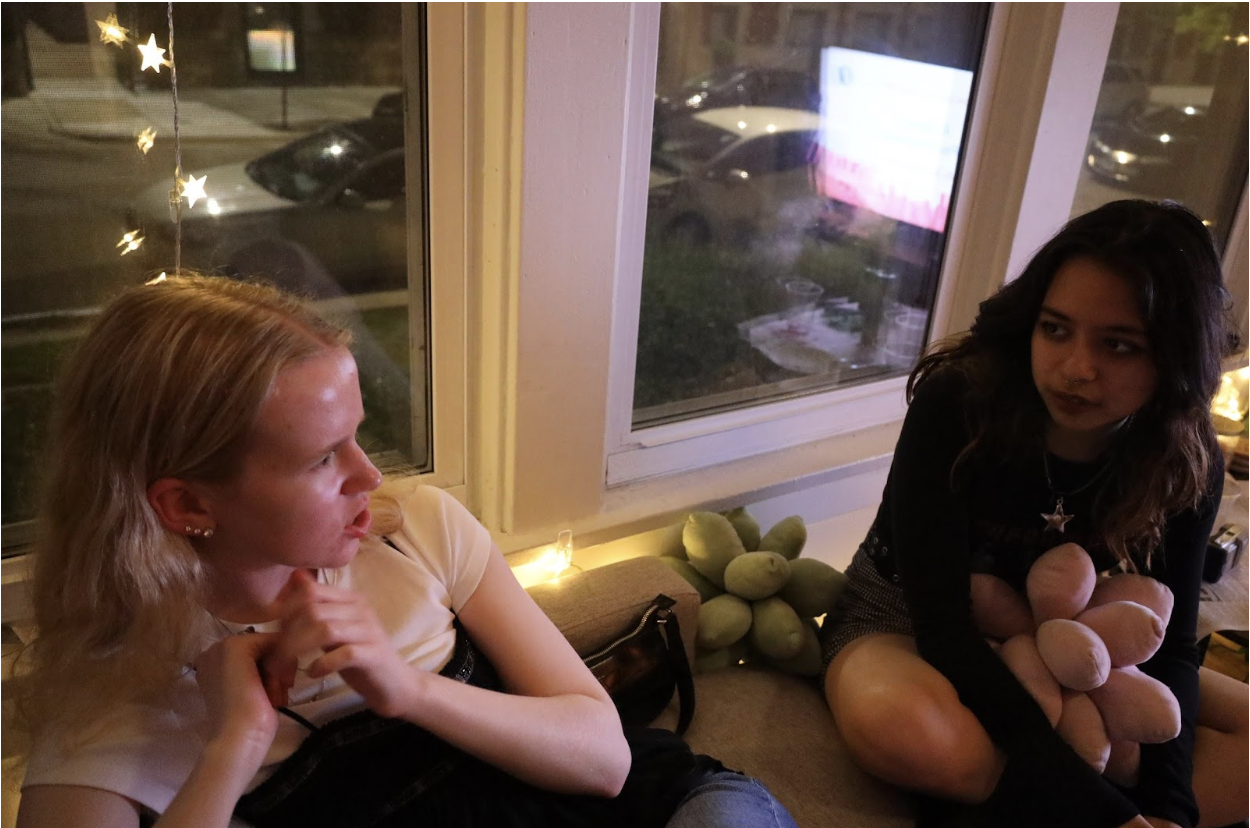
Peyton Hopp and Gia Clarke chatting. Photo by Audrey Leib
I settled on the evening of May 10 for this iteration of Open Mic Night. I created posters and invited as many people from the different corners of my life as I could, including fellow 14 East staff members, coworkers from my part time job, classmates and friends. To keep the cost down, I asked people to bring drinks, sweets and snacks. I made a lemon loaf cake and a veggie plate. To my surprise, the veggie plate was almost gone by the end of the night, while the cake went untouched.
The first person to arrive was my friend Luke Winnie, who brought a microphone and an amp. But when he dug into his backpack, he found an old laptop charger instead of a microphone. “It’s a small room,” he said. “You don’t really need a microphone. Sorry.”
OK, sure, fine. My living room is pretty small, and he ended up being right. My friend Gabe called it an “open” because of the lack of a microphone.
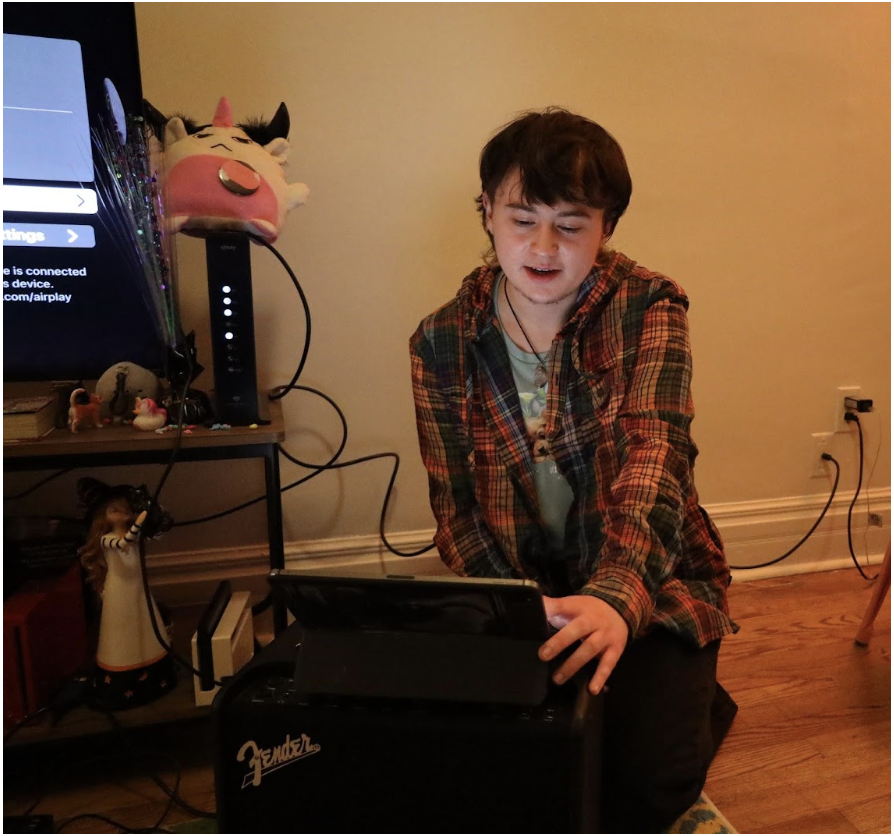
Noah Moore sharing a story. Photo by Audrey Leib
I had friends sign up to present slideshows, poems, stories or stand up. I went first, with a slideshow of my favorite memes and pictures. It was 44 slides long, my friend Hans remarking, “That’s a lot of favorites.”
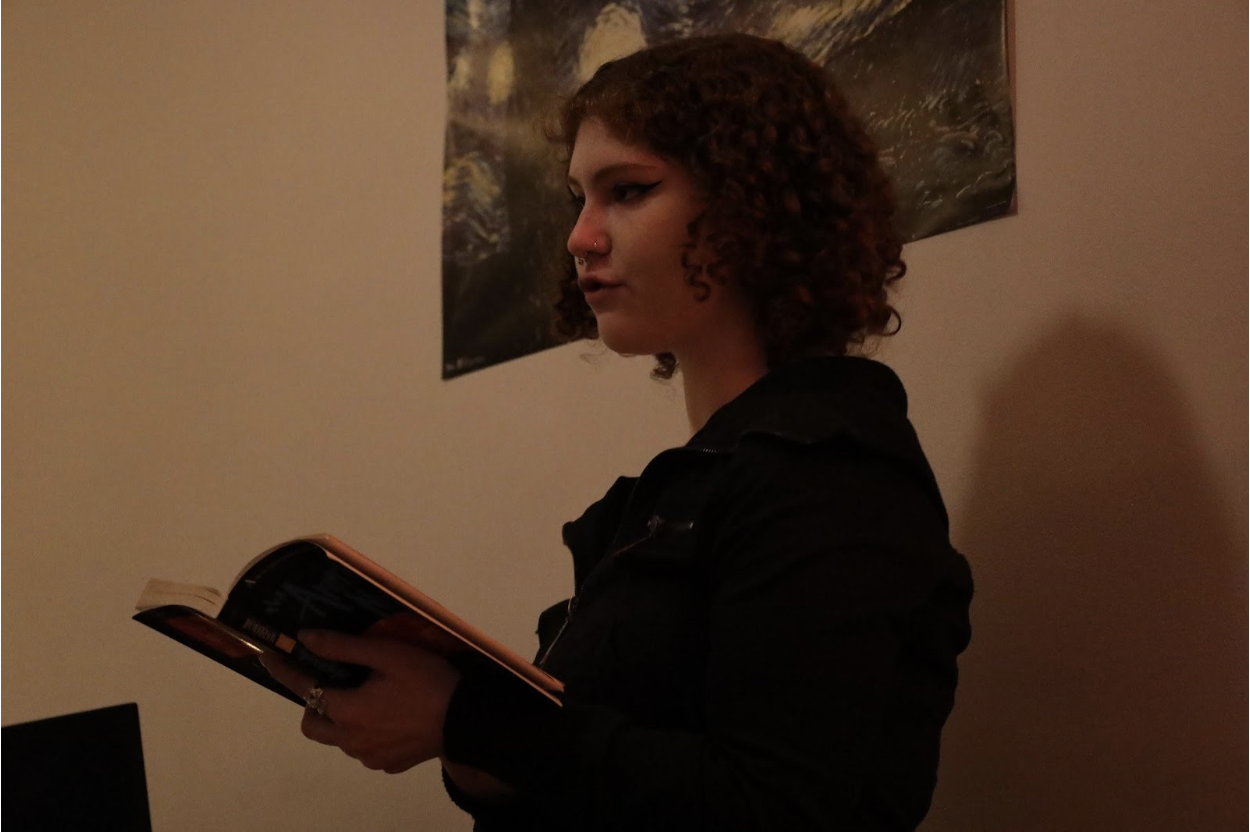
Bridget Zimmerman reading a poem by Jim Morrison. Photo by Audrey Leib
My friend Brigid went next. Her slideshow was a compilation of “Hear Me Outs,” or those crushes you would get flack for. One of these was my dad. After her slideshow, she read her beautiful poetry and did some stand up.
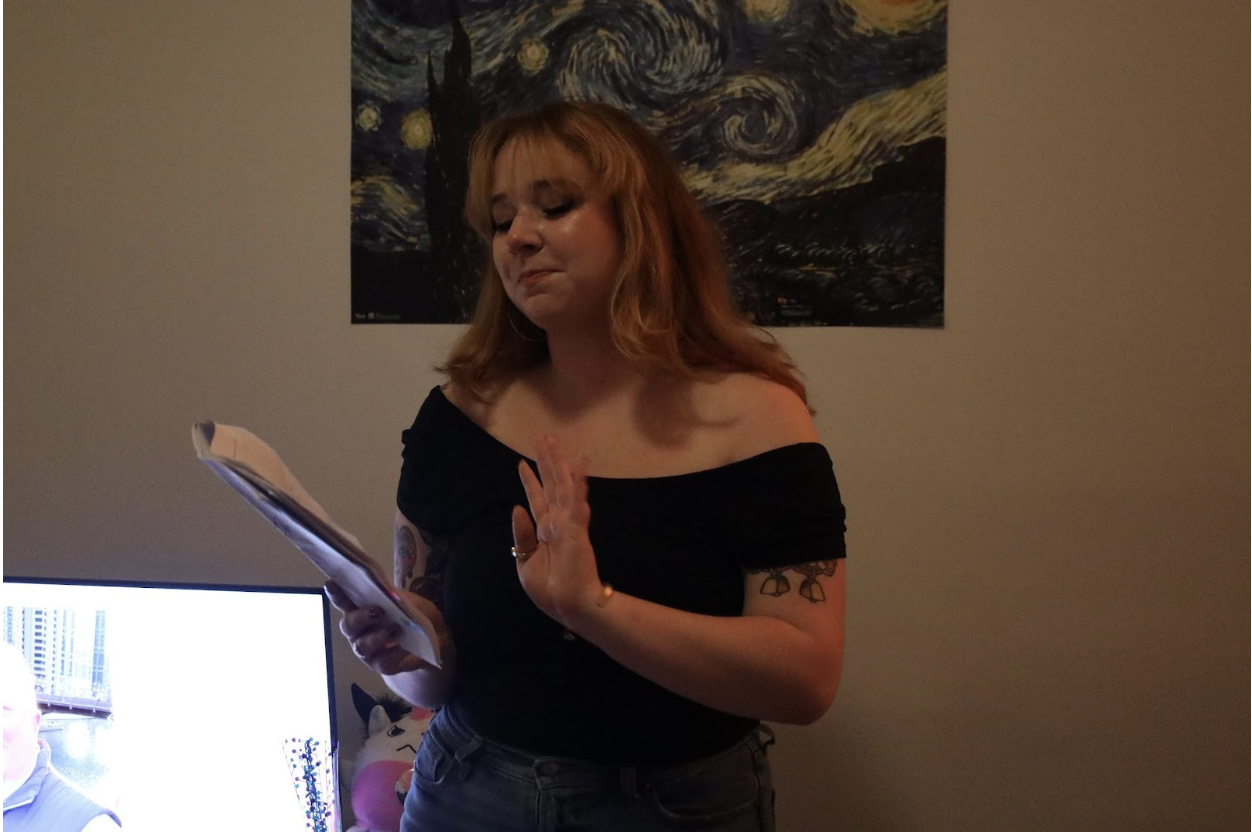
Brigid O’Brien reading her poetry while a photo of Kurt Leib lingers on the TV. Photo by Audrey Leib
Others included stories, poetry written on the spot and song readings, a reading of Jim Morrison’s poetry, a presentation on campaign-finance laws and DePaul’s presidents ranked from most to least attractive.
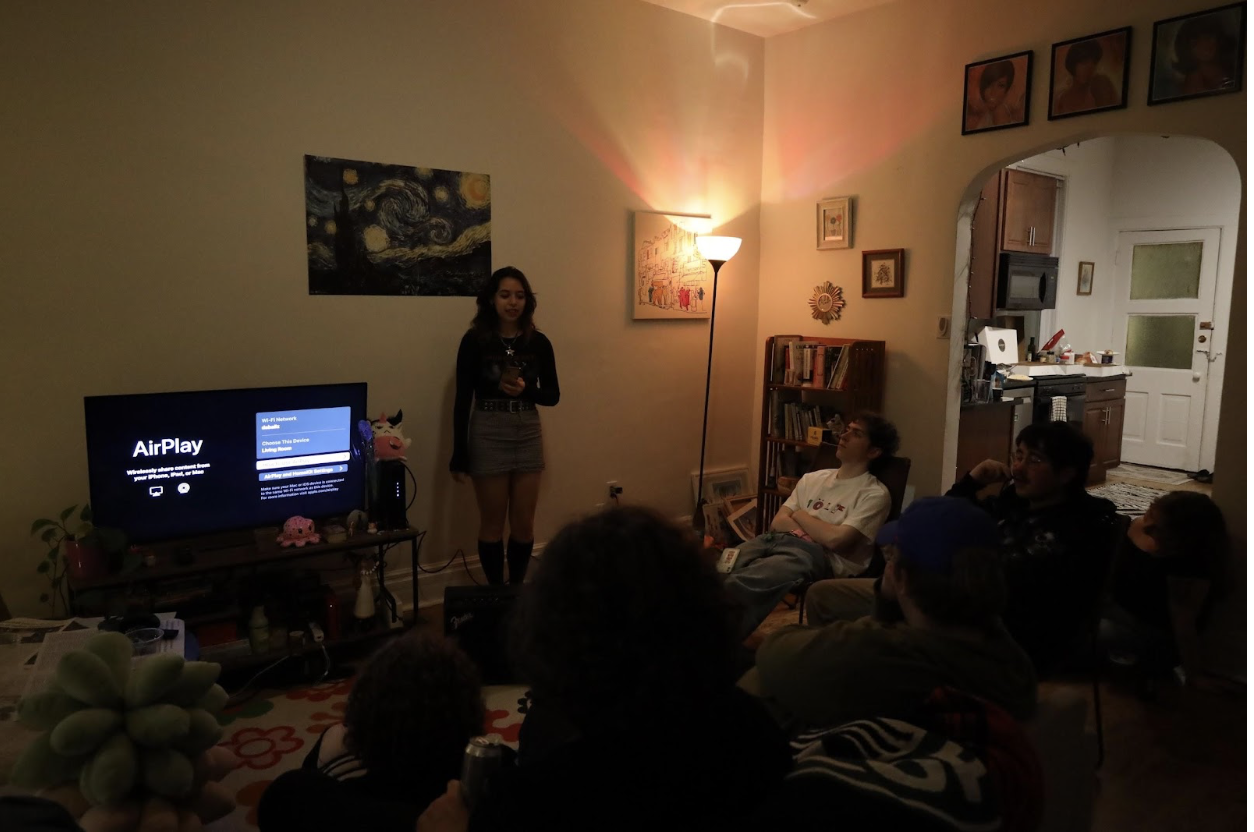
Gia Clarke reads her poetry to the group. Photo by Audrey Leib
As the night went on and the ones I loved presented their creative works, I felt proud. Here I was, in my living room, with all those closest to me in Chicago, overjoyed I could have them all in the same room. Many of them have different schedules, different rhythms of life, and yet all of them could make it to this community building experiment; or, what they kept calling it, “a party.”
To have so many different walks of life in the same room, all connected by one thing or another, is truly a lost art. So, I urge you, host a night like this with all those you love – friends, exes, coworkers, old roommates, distant relatives you met on Ancestry, whomever you choose – and behold the glory of a third place, or what your guests will call it, “a party.”
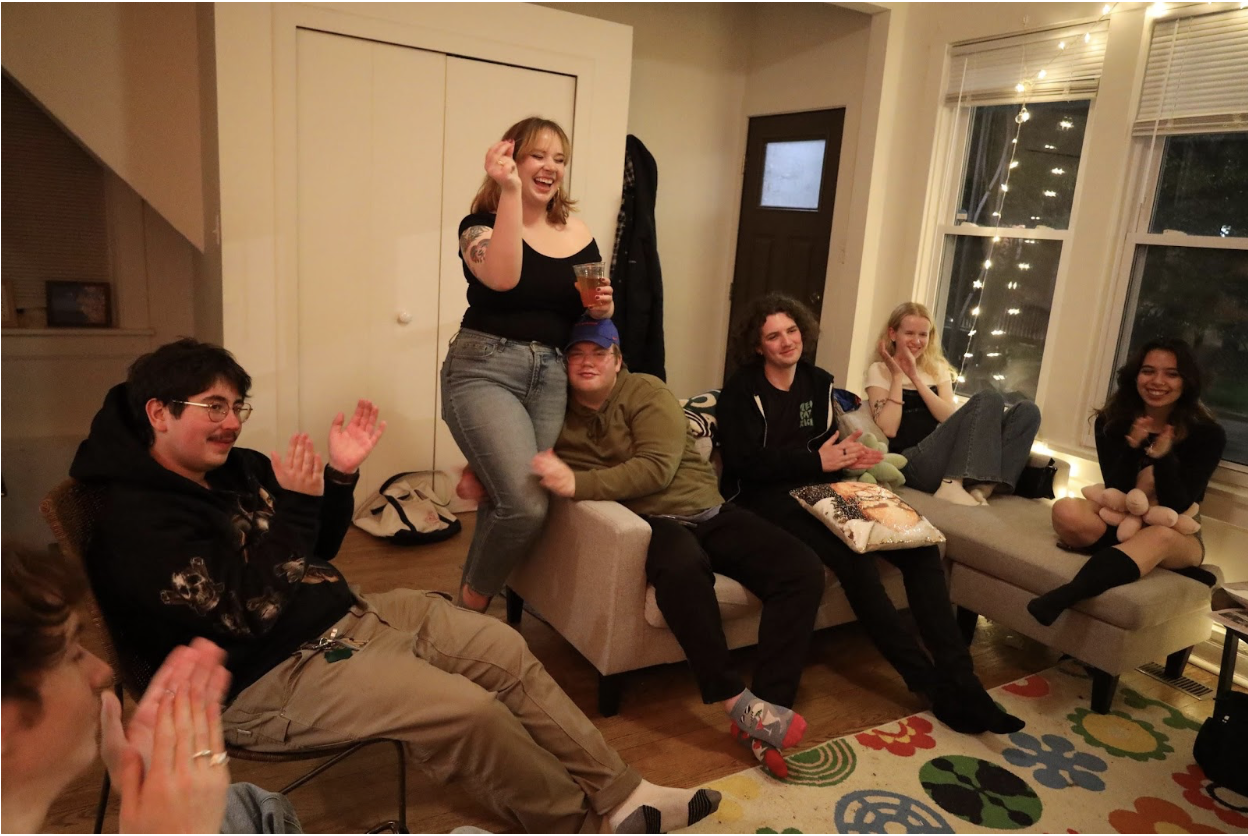
The group clapping after Bridget Zimmerman’s reading. Photo by Audrey Leib
Header by Alexis Phelps


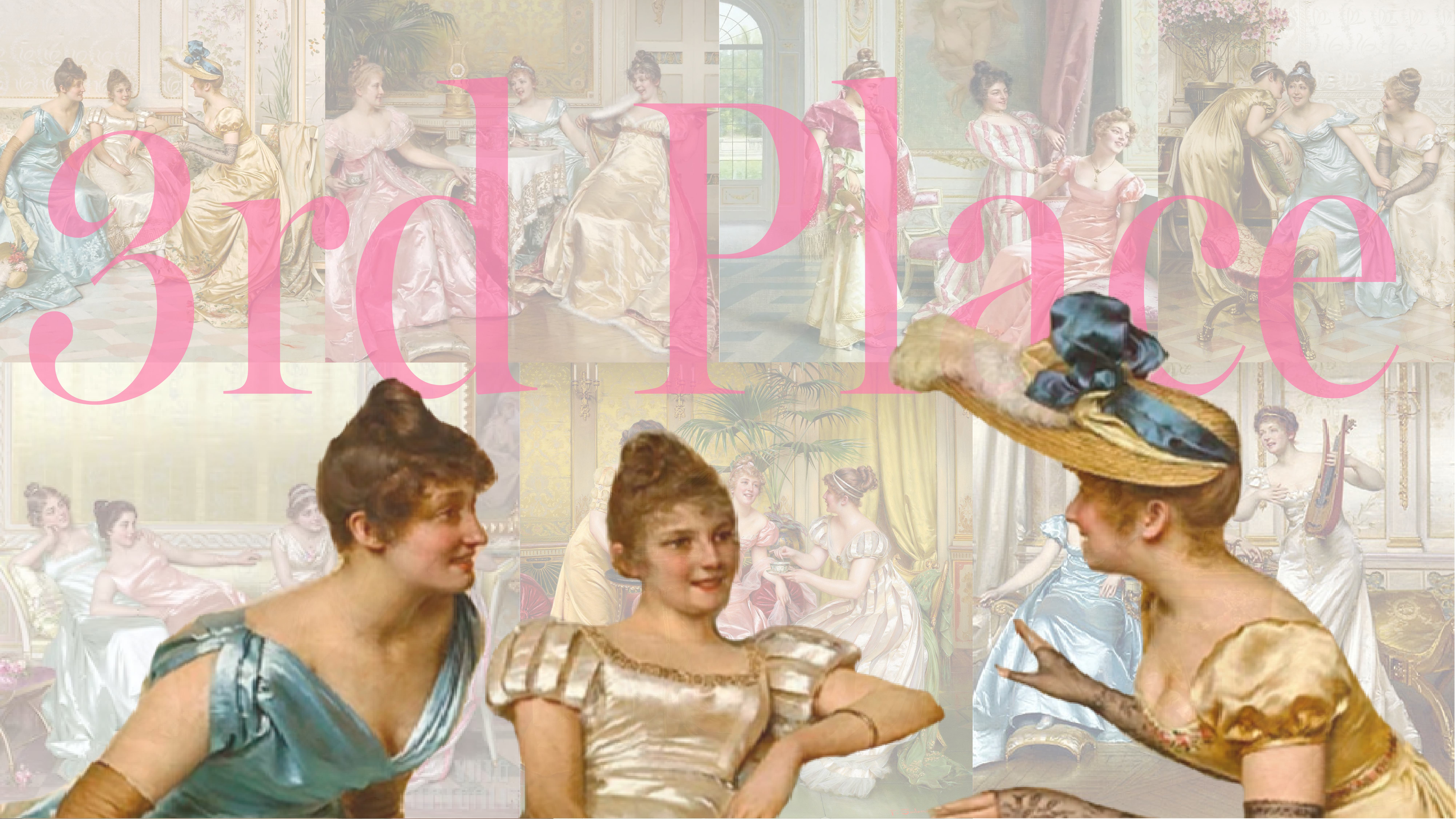

NO COMMENT